November 30, 2022
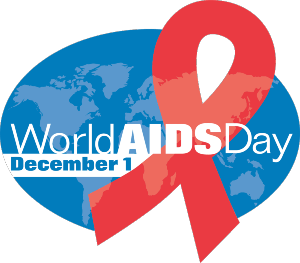
Each year, World AIDS Day is held on December 1 as an opportunity to unite in solidarity for the fight against HIV, honor people living with HIV, and those lost to an HIV/AIDS-related illness. The Institute of Human Virology (IHV), in particular, its Founder and Co-Director Robert C. Gallo, MD, The Homer & Martha Gudelsky Distinguished Professor in Medicine, and its many members have made many contributions and advancements towards preventing, treating, and developing a cure for HIV.
Dr. Gallo is the eminent scientist who became world famous in 1984 when he co-discovered HIV as the cause of AIDS. Little was known then of the mysterious disease that was fast becoming the deadliest in medical history. Since then, Dr. Gallo has spent much of his career trying to put an end to this raging epidemic and other viral, chronic illnesses.
Though best known for his co-discovery of HIV, Dr. Gallo and his team pioneered developing the HIV blood test, which enabled health care workers for the first time to screen for the AIDS virus — leading to more rapid diagnosis while simultaneously protecting patients receiving blood transfusions. His research also helped physicians develop HIV therapies to prolong the lives of those infected with the virus.
In 1996, his discovery that chemokines, natural chemical messengers that activate the immune system, can block HIV and halt the progression of AIDS was hailed by Science magazine as one of that year's most important scientific breakthroughs. This also helped others identify the protein CCR5 as the HIV co-receptor that allows HIV to enter into and infect cells, since these chemokines were known to bind to CCR5.
Today, Dr. Gallo's work continues at the IHV, which he co-founded in 1996 with William Blattner, MD, retired since 2016 and Robert Redfield, MD, who resigned in March 2018 to become Director of the U.S. Centers for Disease Control and Prevention (CDC). IHV is a partnership between the State of Maryland, the City of Baltimore, the University System of Maryland, and the University of Maryland Medical System, as a first-of-its-kind virology center that combines the disciplines of research, patient care, and prevention programs in a concerted effort to speed the pace of medical breakthroughs.
The Institute, with its various laboratory and patient care facilities, is uniquely housed in a 250,000 square-foot building located in the center of Baltimore and our nation’s HIV/AIDS pandemic. IHV creates an environment where multidisciplinary research, education, and clinical programs work closely together to expedite the scientific understanding of HIV/AIDS pathogenesis and to develop therapeutic interventions to make AIDS and virus-caused cancers manageable, if not curable, diseases.
IHV is also comprised of five Divisions including the Virology, Pathogenesis, and Cancer Division led by Lishan Su, PhD, The Charles Gordon Smith Professor for HIV Research and Professor of Pharmacology; the Vaccine Research Division led by George Lewis, PhD, The Robert C. Gallo, MD Endowed Professorship in Translational Medicine, IHV Deputy Director, Professor of Microbiology and Immunology; the Immunotherapy Division led by Interim Director Dr. Su; the Clinical Care and Research Division led by Shyam Kottilil, MBBS, PhD, Professor of Medicine; and the Epidemiology and Prevention Division led by Man Charurat, PhD, Professor of Medicine, as well as a Center for International Health, Education, and Biosecurity (Ciheb) also led by Dr. Charurat, and four Scientific Core Facilities.
IHV's more than 300 employees include more than 80 faculty whose research efforts are focused on the area of chronic human viral infection and disease. At present, more than 75 percent of the Institute's clinical and research effort is targeted at HIV infection, but also investigates hepatitis B and C, human papilloma viruses, COVID-19, and more.
A particular focus of IHV includes learning how to use the body's natural chemistry for its own therapeutic potential and pursuing biologically-based treatment approaches, such as antibodies, that are less toxic to the body and, often, less costly to the patient and public.
IHV also pursues developing effective therapeutic and preventative vaccines, science's greatest hope in putting an end to the AIDS pandemic. A preventive HIV vaccine candidate developed at the IHV and funded largely by the Bill & Melinda Gates Foundation is now in human phase 1/2b clinical trials.
IHV’s patient base has grown from just 200 patients to approximately 5,000 in Baltimore and Washington, D.C., and more than 2 million in African and Caribbean nations.
The JACQUES Initiative is a program of the IHV that offers HIV testing, prevention, education, connection to care, and supportive services. The mission of JACQUES Initiative is to change lives, engage communities, and support health systems affected by HIV and hepatitis C.
The THRIVE (Together, Healing, Reaching, Inspiring to achieve Victory over illness, and Embrace life) program is the IHV's primary care and specialty practice for people living with HIV/AIDS. The mission of THRIVE is to deliver high quality comprehensive health care that inspires individuals to thrive. This mission is realized by meeting patients’ medical, emotional, and social needs through comprehensive, patient-centered, compassionate, team-based care that incorporates a wide range of integrated services to elevate health and well-being of diverse people and communities. THRIVE collaborates with academic, governmental, community, and research partners that further its mission and values. The THRIVE program aims to adapt to the ever-changing needs of people at risk for, living with, and aging with HIV.
IHV manages the Research Initiative on Infectious Disease and Substance Use (RIIS) program which is a unique Baltimore and D.C. community-based clinical care and research program with the primary purpose to explore the intersection of infections and substance use in marginalized populations. The goal of RIIS is to eliminate health disparities and treat HIV, hepatitis C, and substance abuse of opioids, tobacco, and methamphetamines. RIIS grew out of the DC Partnership for HIV/AIDS Progress (PFAP), a local-federal partnership funded by the NIH Office of AIDS Research and established in 2009 to support multidisciplinary research efforts in response to HIV in the region. RIIS investigators learn about high-risk populations and barriers to care, assessing patient-centered interventions to improve care delivery, and facilitate translational research in conjunction with clinical work. RIIS seeks to care for the most marginalized members of the community who typically do not get traditional healthcare including people who are injection drug users, those without homes, transgender individuals, and sex workers.
IHV established Ciheb, which conducts much of the international research, training, and patient care programs. The center is comprised of a network of international experts who work with local stakeholders to combat infectious and non-communicable diseases in resource-limited regions of the world. At this time, Ciheb works in Botswana, Kenya, Malawi, Mozambique, Nigeria, Rwanda, and Tanzania.
This year for World AIDS Day, Dr. Gallo will lecture at Nova Southeastern University, Fort Lauderdale, Florida as part of the “Golden Age of Science -Adventures and Maturation in the History of Science” keystone lecture series on “HIV-AIDS From Emergence, HIV Discovery, Terror, and Translation.
Also, in honor of World AIDS Day, the Maryland Department of Health, University of Maryland, and Johns Hopkins University are hosting a Severe Monkeypox Grand Rounds to spread awareness of severe Monkeypox manifestations and treatments for patients living with HIV/AIDS. The online live webinar will feature presentations by THRIVE care providers Kathryn Schlaffer, MD, Assistant Professor of Medicine, and Edward Traver, MD, Assistant Professor of Medicine. Register here.
Contact
Institute of Human Virology
Jennifer Gonzales
Public Relations & Communications Manager
jennifer.gonzales@ihv.umaryland.edu
Related stories
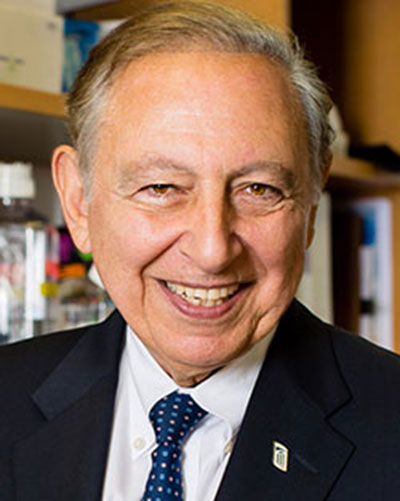
Friday, January 06, 2023
USA Today: Fact check: Research proves HIV is the cause of AIDS, contrary to viral claim
The claim: There is no proof HIV is the cause of AIDS. A Dec. 15 Facebook video shows Kary Mullis, a scientist known for denying the link between HIV and AIDS, claiming again there is no proof HIV is the cause of AIDS. The post was shared more than 1,000 times in a week. The clip comes from a 2009 documentary that promoted AIDS denialism, which has more than 300,000 views on YouTube.
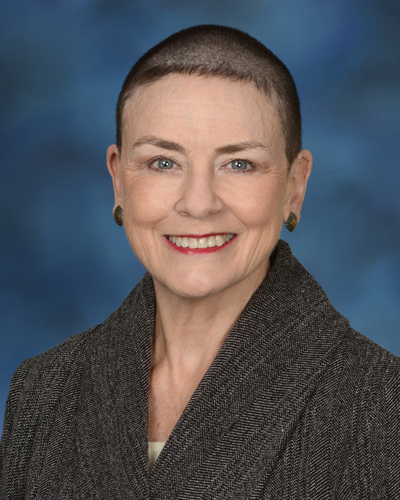
Wednesday, September 21, 2022
Baltimore Fishbowl: ‘AIDS ain’t over’: Supporters look back on 35 years at AIDS Action Baltimore
Six people were honored on Sunday for their support of AIDS Action Baltimore, as it marks its 35th anniversary. More than 150 people gathered at The Belvedere to mark the occasion and pay tribute to the honorees and executive director Lynda Dee.
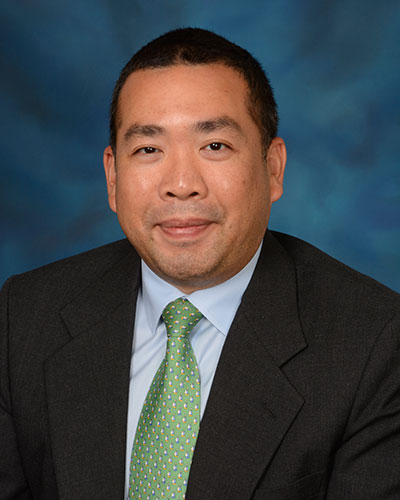
Friday, May 20, 2022
NIH Grant Awarded to Study HIV Drug-Resistant Genetic Mutations Across Africa
University of Maryland School of Medicine (UMSOM)’s Institute of Human Virology (IHV) researchers received funding from the National Institutes of Health’s National Institute of Allergy and Infectious Diseases (NIAID) for $2.7 million to study genetic changes in two genes from the HIV-1 virus that may make it resistant to antiretroviral therapy. The study, named INSPIRE, will analyze genetic variation in types of HIV circulating in a handful of African countries that will help to better understand the implications of these mutations and will improve clinical management of patients.

Tuesday, October 26, 2021
Correio Braziliense: "It's obvious that no vaccine causes AIDS," says one of the virologists who discovered HIV
The virologist, and one of the discoverers of HIV, speaks to Correio about statements by President Bolsonaro live on social media
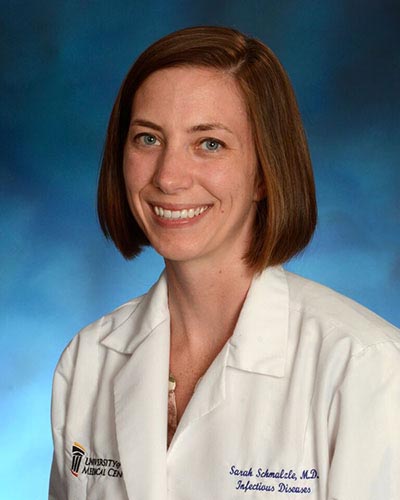
Monday, August 03, 2020
Infectious Disease Special Edition: COVID-19 and HIV: Was It a Deadly Mix?
Social distancing is one of the curses of COVID-19, and may fall more heavily on people with HIV than on those without this burden. “People with HIV, and in particular certain subsets of that group—the LGBTQ community, older adults aging with HIV, etc.—face more mental health issues than the general population,” said Sarah Schmalzle, MD, an assistant professor of medicine at the Institute of Human Virology, University of Maryland School of Medicine, in Baltimore. “Many of our patients also already face significant isolation and loneliness due to a combination of HIV stigma, losses of friends and family to HIV, and aging.”

Tuesday, July 07, 2020
Courthouse News Service: Global Progress on Ending HIV/AIDS Derailed by Covid-19
A United Nations program aimed at eliminating HIV/AIDS released a report Monday showing that the global response to the epidemic has fallen far short of goals set for 2020, in large part due to the coronavirus pandemic.

Wednesday, September 20, 2017
Institute of Human Virology Marks National Gay Men's HIV/AIDS Awareness Day on Wednesday, September 27 as HIV/AIDS Increases in Baltimore’s Youth
The proportion of newly reported HIV diagnoses among Maryland youth has tripled over 20 years. The Institute of Human Virology (IHV) at the University of Maryland School of Medicine will host an event Wednesday, September 27 to raise awareness about the rise in HIV/AIDS among Maryland’s youth ages 13-24, particularly among young black men. Of the 252 youth HIV diagnoses in 2015, 82.5 percent were male and 17.5 percent were female in Maryland while 82.1 percent of these new diagnoses were African American. The statistics are astounding considering the availability of prevention therapy.
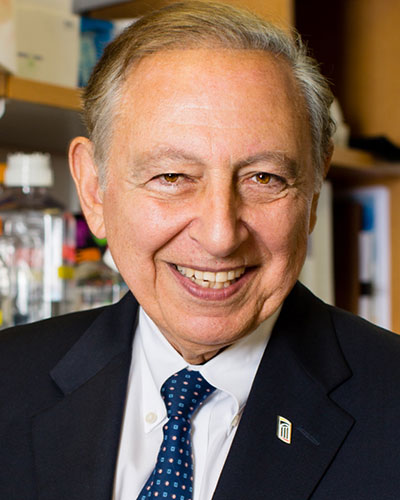
Tuesday, October 25, 2016
"A Call to End HIV/AIDS in America" IHV Director Dr. Robert Gallo's Op-Ed in the Huffington Post
As the new Administration is presented with great challenges facing the United States, one will be a longtime foe, the U.S. HIV/AIDS epidemic. Since President Barack Obama was elected in 2008, I have publicly called on our country’s leaders to utilize the largest global health initiative in history - the President’s Emergency Plan for AIDS Relief (PEPFAR) - as a model to address the U.S. epidemic.

